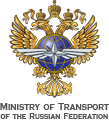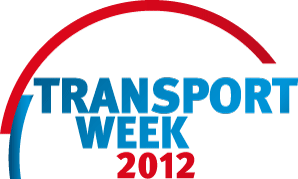Press Center
New Moscow: Programme for Development of the Capital’s Transport Hub to be Updated
The Programme for Development of the Moscow Transport Hub up to 2020 is to be reworked in connection with the capital’s expansion, Russia’s Deputy Transport Minister Oleg Belozerov revealed during the expert dialogue “Moscow 2020: Transformation of the Transport Ideology” held as part of the VI International Forum “Transport of Russia”.
The first of the three stages of the programme for 2011-2012 developed in 2009-2010 envisaged funding in the amount of 1 trillion roubles but only 50% of that sum has actually been disbursed, Oleg Belozerov said, the main reason being the world financial crisis.
The new version of the programme has the following parameters. A Muscovite’s commute time should not exceed 40 minutes, whereas it currently takes from 65 minutes by public transport to 49 minutes (not counting traffic jams) for drivers.
There should be no more than three passengers per square metre on public transport. Today the average figure for all types of transport is 5.5.
Change from one type of transport to another should take between 4 and 9 minutes. Today it takes an average of 20 minutes.
The following measures will be taken to achieve the above parameters: development of transport change hubs, dedicated lanes for public transport and procurement of bigger vehicles.
Moscow Region Transport Minister Alexander Vorobyov said the main obstacle to development of the capital’s roads is level crossings between roads and railways. The programme for building grade separation structures adopted in 2006 envisages building of 28 such structures. As of today, only two have been built, the remaining ones being at various stages of design and construction.
Unfortunately, Alexander Vorobyov said, such projects are too expensive for the budget. For this reason, a programme has been developed for building 20 toll crossovers before 2018 with the participation of private investors. The project payback period is 20 years. It is currently at the approval stage. In addition, 429 intercept parking lots are to be created with a payback period of 7-8 years. Five of these have already been built.
Presenting the project for passenger traffic on the Moscow Ring Railway, its First Deputy General Director said that its initial capacity would be 190 million passengers a year but that this figure might reach 285 million in peak years. For the sake of comparison, the Moscow Metro ring line carries about 200 million passengers a year and the most heavily loaded radial line carries 330 million passengers a year.
There was consensus among the experts taking part in the dialogue that New Moscow would need efficient coordination of projects for development of all types of transport. Wrapping up the discussion, Oleg Belozerov noted, however, that transport played an auxiliary role in making the capital a comfortable place to live. Urban development policy is key. For example, if certain production facilities are located close to residential districts, thereby reducing the commute time, this will cease to be a problem.
Information support:
Maria Rudneva
PR Director, Business Dialogue LLC
Tel: +7 (495) 988–28–01 (ext. 70406)
Mob.: +7 (915) 354–81–42
mr@bd-event.ru


